There’s a lot of research out there that shows people have a hard time accurately assessing themselves. The Dunning-Kruger effect suggests that people who know little about a subject think they are experts and those who know a lot think they don’t know enough.
There’s also a study that shows that people rated “unattractive” by others are likelier to rate themselves as having “average attractiveness,” and drop-dead gorgeous people tend to underestimate their appearance.
The innate inability of the average person to gauge their attractiveness or intelligence could cause trouble for many folks. But for those who are socially awkward, perk up; research shows that you may be underestimating how likable you really are.
Studies show that when people meet someone for the first time, they often underestimate how much the other person enjoys their company. “We call this a liking gap, and it can hinder our ability to develop new relationships,” Margaret S. Clark, the John M. Musser Professor of Psychology and an author of the study, told Yale News.

The problem is that when people meet someone new, they overanalyze how they performed in the social interaction and miss all of the positive signals the other person sends. “They seem to be too wrapped up in their own worries about what they should say or did say to see signals of others’ liking for them, which observers of the conservations see right away,” Clark added.
In short, when we meet new people, we focus on the negatives.
“We critically monitor ourselves and regret not telling the joke more smoothly or worry about whether we sound as if we are bragging,” Clark said. “We're self-protectively pessimistic and do not want to assume the other likes us before we find out if that's really true.”
Harvard Business Review performed a similar study and found the same results: people underestimate how well others like them after a first meeting.
“Time and time again, we found that people left their conversations with negatively biased feelings about the impression they made (“I’m pretty sure that I liked them more than they liked me.”),” [anme] wrote in the Business Review. “That is, people systematically underestimate how much their conversation partners like them and enjoy their company — an illusion we call the ‘liking gap.’”
They also found that this gap isn’t just temporary. The researchers found that new coworkers felt the same gap for 6 months after their initial meeting.
The good news about the study is that it’s a great reason to reevaluate how much the new people in our lives actually like us. It’s also a reminder that when we meet new people, we pay more attention to them. Look for cues that signal they are enjoying the conversation. Be an active listener and ask a lot of questions. Researchers say that the best conversationalists are actually even better listeners, only speaking 43% of the time during one-on-one conversations.
When you stop thinking about yourself and being self-conscious, it can open up a world of understanding and opportunities.

















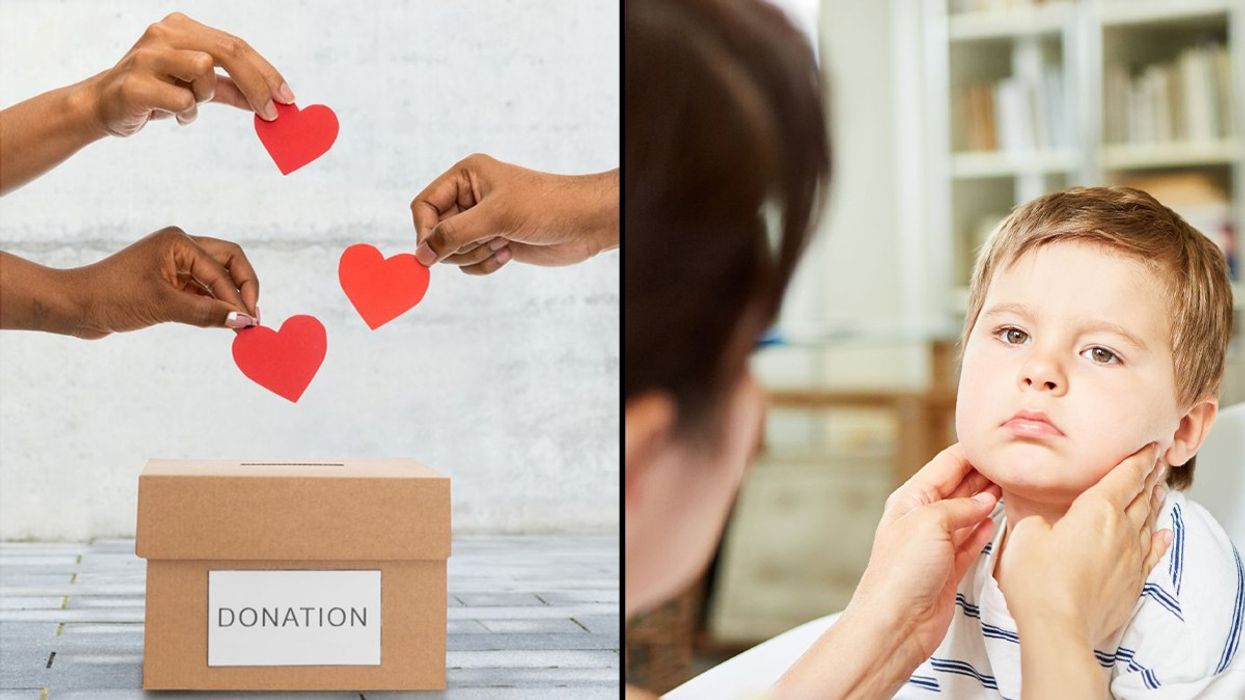
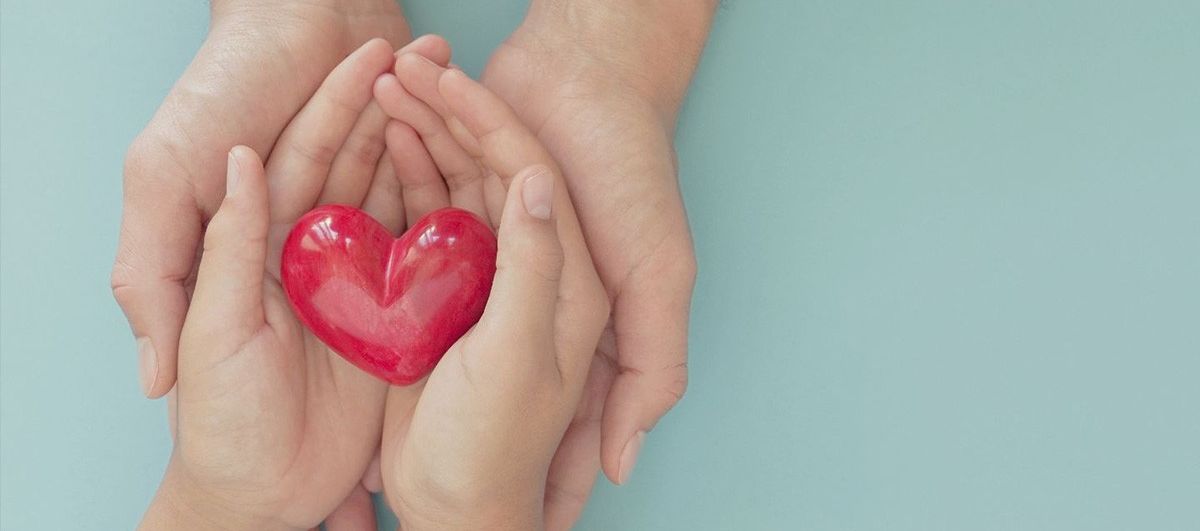 A symbol for organ donation.Image via
A symbol for organ donation.Image via 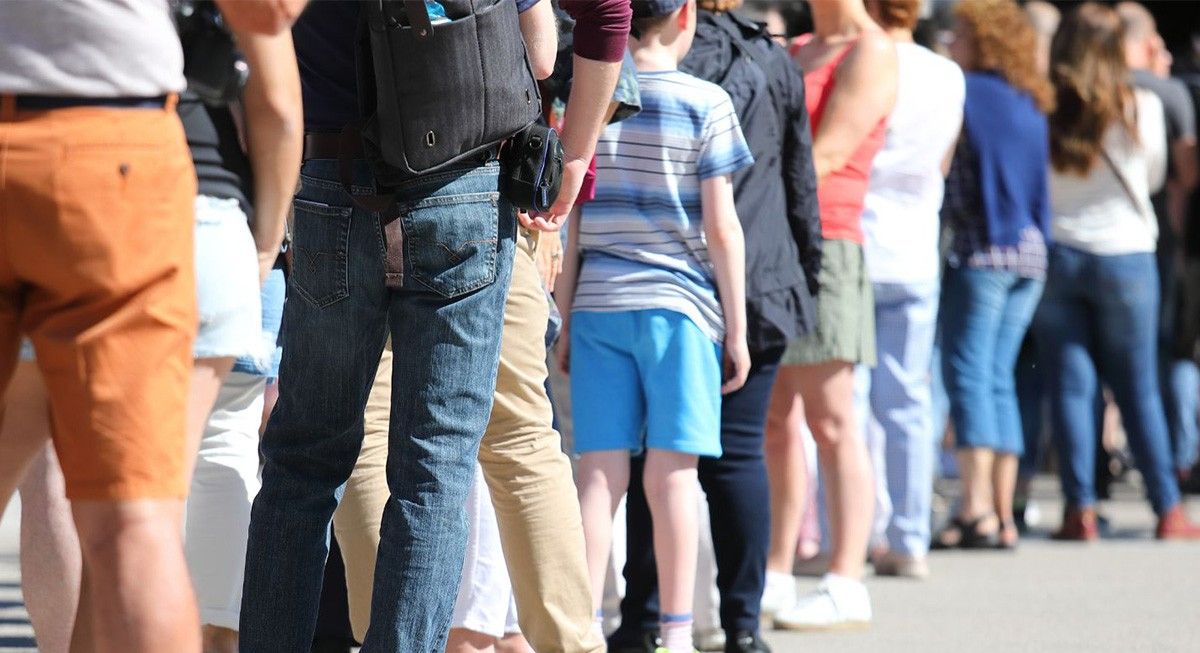 A line of people.Image via
A line of people.Image via 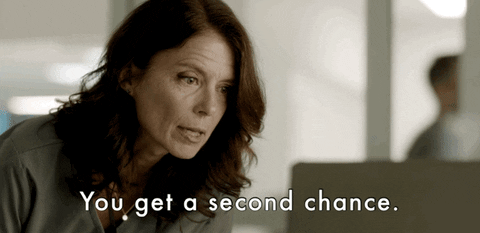 "You get a second chance."
"You get a second chance." 


 36 is the magic number.
36 is the magic number.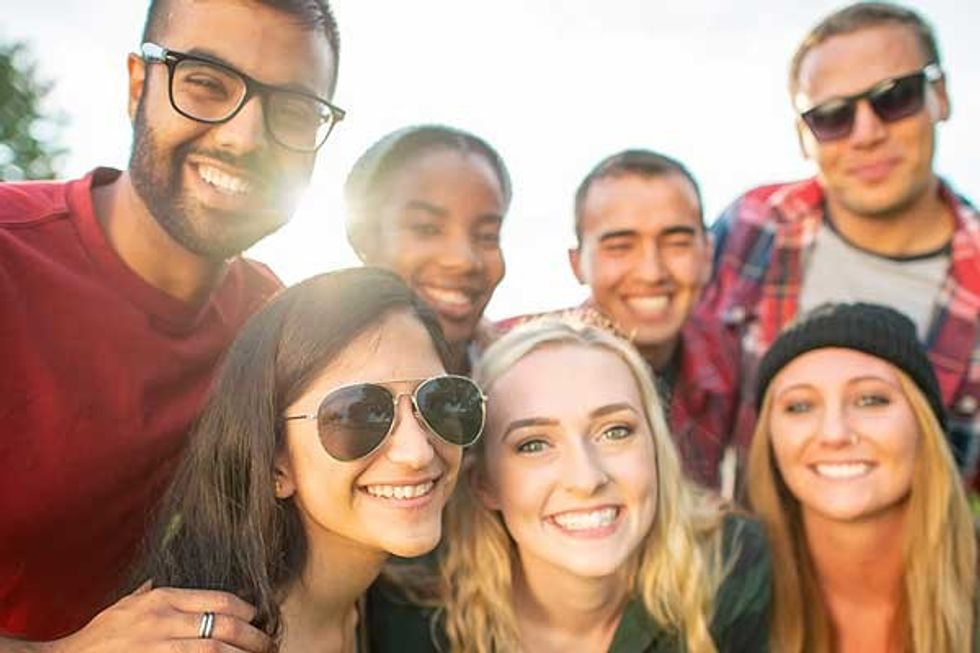 According to one respondendant things "feel more in place".
According to one respondendant things "feel more in place". 
 Some plastic containers.Representational Image Source: Pexels I Photo by Nataliya Vaitkevich
Some plastic containers.Representational Image Source: Pexels I Photo by Nataliya Vaitkevich Man with a plastic container.Representative Image Source: Pexels | Kampus Production
Man with a plastic container.Representative Image Source: Pexels | Kampus Production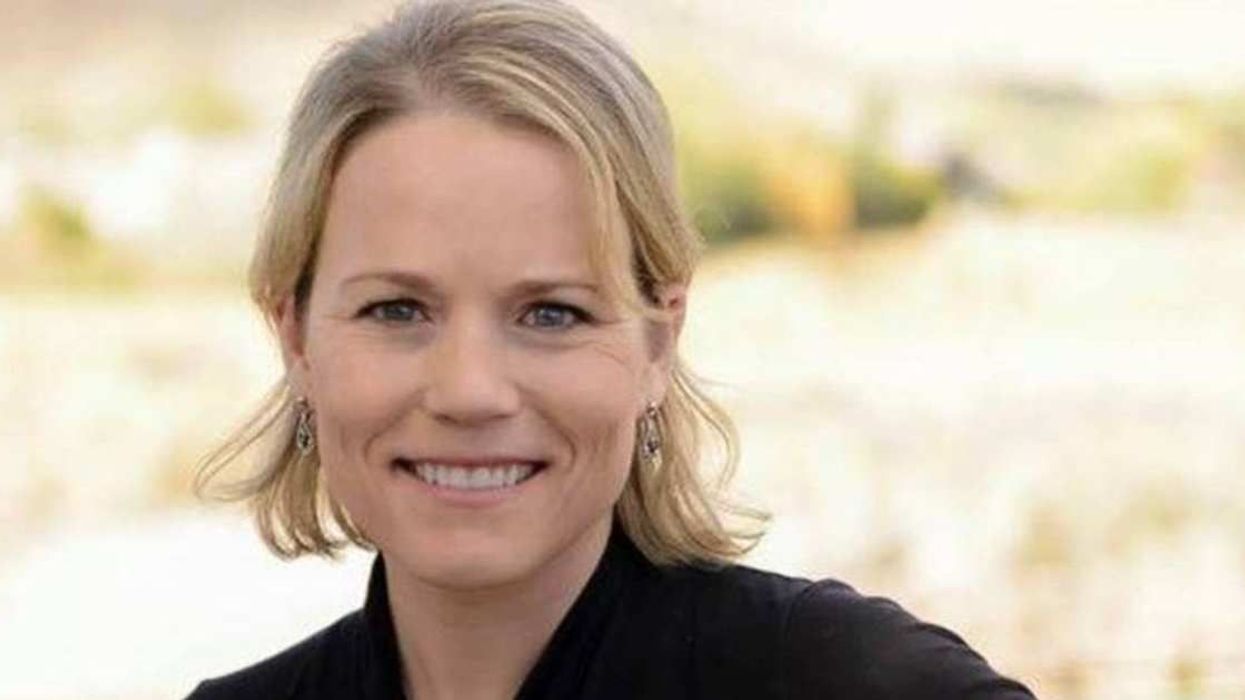
 Canva
Canva It's easy to let little things go undone. Canva
It's easy to let little things go undone. Canva
 Photo by
Photo by 
 Teens are waiting longer than at any point in the survey’s history. Canva
Teens are waiting longer than at any point in the survey’s history. Canva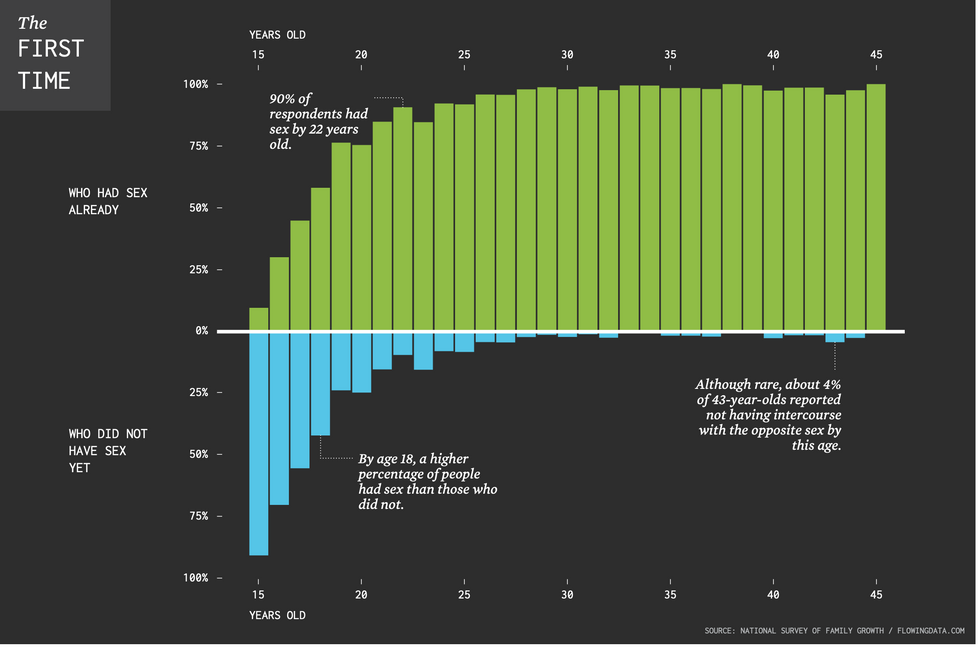 Chart on the age of a person’s first time having sex.National Survey of Family Growth/flowing data.com | Chart on the age of a person’s first time having sex.
Chart on the age of a person’s first time having sex.National Survey of Family Growth/flowing data.com | Chart on the age of a person’s first time having sex.